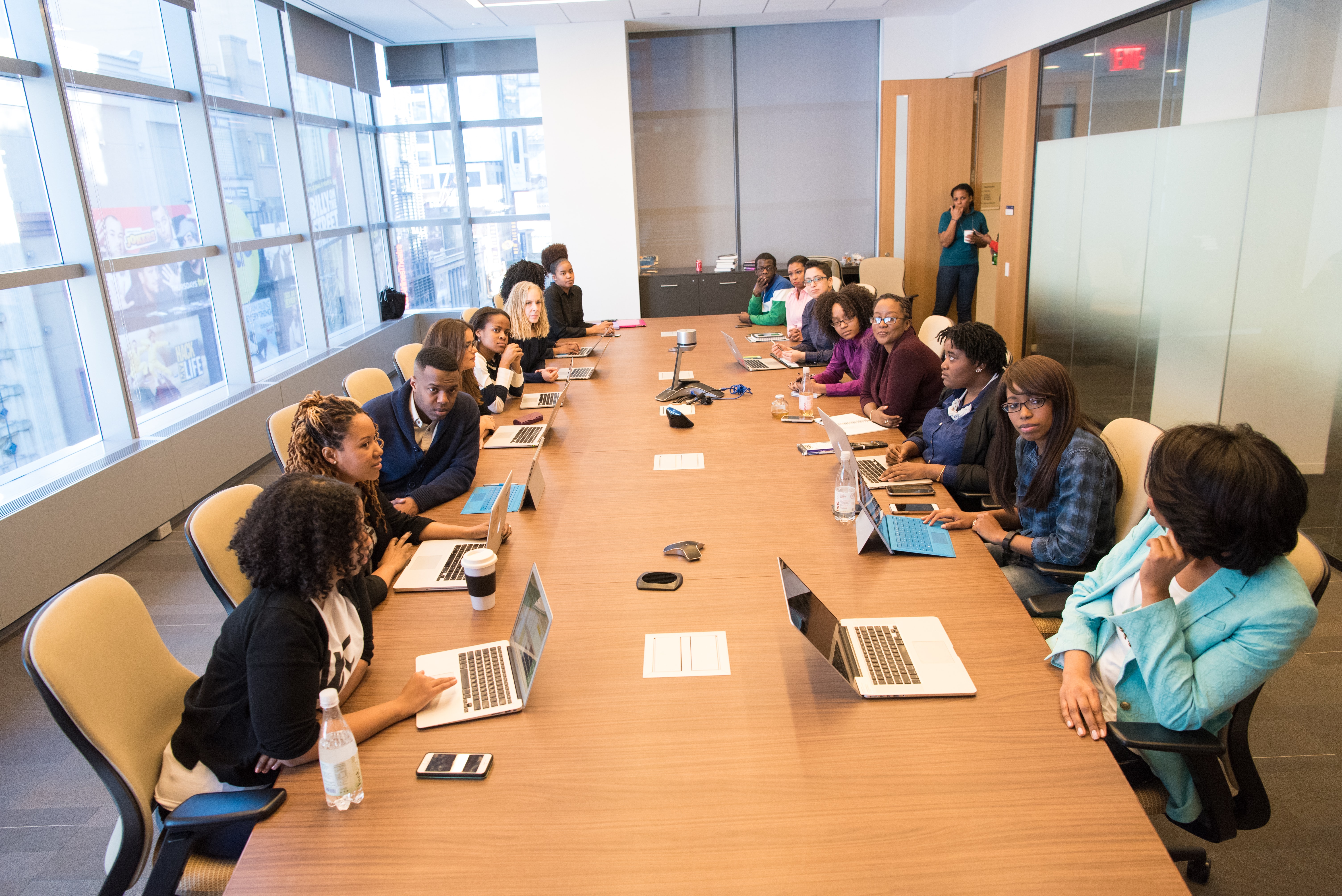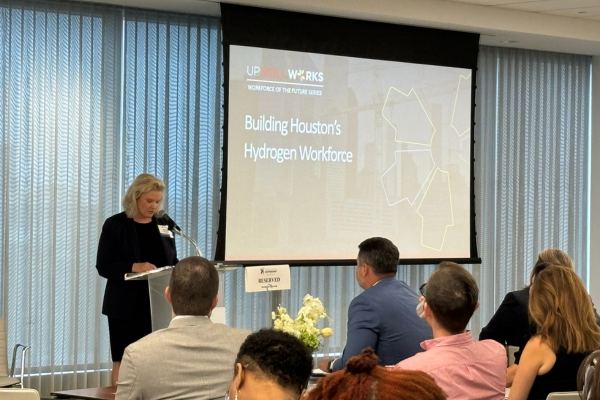Guiding Internal Conversations About Racial Inequity, Injustice with Employees
Published Jul 15, 2020 by Maggie Martin
In the weeks following George Floyd's death and protests in response, businesses across the country have made public statements against racism, injustice and racial inequity. Some pledged money toward social justice efforts. Other organizations are honoring Juneteenth, the holiday commemorating the end of slavery, as an annual holiday.
Many business leaders are also bringing the national conversation to their staff to address these issues within their organization.
Denise Hamilton is a diversity and inclusion strategist, consultant, and founder and CEO of WatchHerWork, a multimedia digital platform for women seeking advice and mentorship. We asked Denise for advice on how employers can address racial inequity and injustice internally with their team.
What questions regarding racial bias, racial inequity, disparities and diversity have you received in recent weeks?
Questions I've received include "How can I improve recruitment? How can I talk to employees to make sure we're asking the right questions? I assume my black employees were happy. Are they? What do I need to do differently?"
There's a desire to treat everyone the same, but maybe you can't treat everyone the same, so how do you address these things and manage morale? I think what people really want to know is what to do. There's a new awakening. There's always a struggle of what a business can do to impact such a societal change.
As difficult as it is, this is still a business problem. Having a workforce that’s representative of the community, especially in Houston, is important. It’s good business.
What steps should businesses take to address these issues internally?
The first step is admitting what you don’t know. This is one of the hardest things for successful leaders who consider themselves well-trained and well-developed. It’s valuable to bring in consultants and partners to navigate these spaces. You probably can’t just trust your gut.
What do productive internal conversations on racial inequity, injustice and disparities look like?
It is incredibly difficult, in part because of the inadequacy of the language within these conversations. We only have one word for racism. The word that’s used to describe the guy burning crosses on the front lawn in a KKK hood is the same word used for the guidance counselor who tells kids not to bother applying for a challenging school because they won't get in. Consequently, no one thinks they’re racist.
Part of the work I do is to reimagine a new vocabulary. Business leaders need to get away from the buzzwords and focus on the examples within the workplace to create a new conversation.
Who should businesses turn to to help them navigate these issues in the workplace?
A lot of people have been in this space for years. This is not a new area.
What employers should not do is create a new burden on the black employees within their organization. The people you’re trying to support should not be the ones doing the heavy lifting. All too often, the onus is left on employees to lead change and investment of creating a welcoming environment. By doing this, business leaders create an inappropriate burden on employees. They already have to tackle microaggressions within the workplace. Not every black employee wants to be affiliated with this type of work. They want to be seen as an individual contributing to the organization.
Who within the organization is responsible for facilitating the change and conversations? Is it HR?
I'm brought in by the C-suite. This is a C-suite issue. This is a hard problem to tackle or touch without having power within the organization because this is about the redistribution or reallocation of power. That has to be led by leaders who shape and drive the organization.
Unlike other initiatives, this one is not going to be solved in our lifetime. That’s a really important part of our conversation. Leaders like problems they can solve, where they can show big victories. This is long-term work. It’s really unfair to put that responsibility on someone in the middle of the organization, like the HR department.
Does this work businesses are taking on internally impact the public perception of the organization?
It absolutely does. People are paying attention and keeping score. People feel a lot of pressure to do something loud and big. If you’re not sincere, especially in a social media world, it will come out that you’re not sincere.
On the other hand, you don’t have to yell it from the rooftops. The people who are pressured to say something are the people who never say anything. This is about track record. People, and businesses, who are struggling are those who have no track record in this space. If that’s the case, you should get some help in crafting messages in this space. You would do this with anything else. You would acknowledge you have blind spots.
How should businesses, and their employees, hold themselves accountable to follow through on change? What does meaningful change look like?
What you measure is what matters. Change the subjects of your sentences and this gets really clear. We have a long, storied history in business of managing retention. If you have managers running off minority employees, what’s the consequence? Tie it to compensation.
How should businesses, and their employees, hold themselves accountable to follow through on change?
Businesses can say “I’m sorry. We can do better and here’s what we are doing going forward.” Nobody wants to cast their company as not being a winner. We love being winners in our culture. Who wants to step forward and mention “we’re not doing well”? Leaders have to step forward and say we have room to grow. You have to take care of home and be honest about your performance. There can be no sacred cows, this notion that there are hidden spaces that are off limits to correction or revision. There are some sacred cows business leaders are going to have to give up. We can’t have that. This has to be an open dialogue where opportunities to create change are explored and examined. Everything has to be up for evaluation. That’s a hard move to make.
I always meet with leadership to understand the C-suite level commitment to changing the organization's culture. I want to know whether employers really care or whether they're just throwing money at the issues.
This is hard work and it's heart work. When you try to over-measure it, you get unintended consequences, and some people who try to dodge measurements. Be careful in your effort to do something, that you're not just doing anything to count it in the "win" column.
We've inherited an incredible city with an incredible economy. As much as we’ve inherited what’s wonderful with Houston, we’ve also inherited challenges. This is the time. We can’t punt these challenges to another generation.
See Denise Hamilton's recent interviews with the Houston Business Journal and InnovationMap. Read the Partnership's statement in connection to the killing of George Floyd.
 The Houston Report
The Houston Report




















